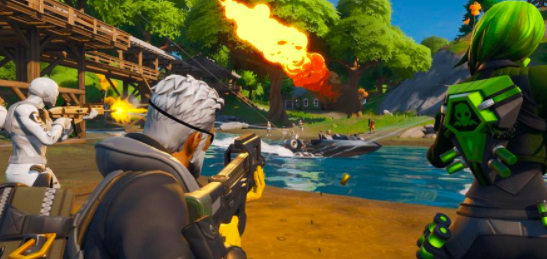
|
As the world continues on its journey through lockdown, one industry which has benefitted from the ‘stay-at-home’ message is the gaming world. With more time on their hands, people have gone to different lengths to ensure stimulation and entertainment. One very popular way to do just that has been to venture into gaming. But, one such area is beginning to thrive more than ever: free-to-play games.
Games with no upfront cost are a novel idea and transcend every sector of the gaming community, whether that be first-person shooters or online slots and French online casinos. In fact, the gambling industry has been at the forefront of this free-to-play concept for a number of years.
Naturally, offers entice people into the gaming and gambling world as they try to make use of a freebie, but the expanding scene of free-to-play games has been evolving for some time.
How Fortnite changed the game, quite literally
According to SuperData’s year-end report in 2018, games with no upfront cost generated a remarkable $88 billion, leaving more traditional games looking on in envy. That year of course witnessed the incredible rise of Fortnite as people of all ages flocked to the battle royale phenomenon.

|
The total gaming market amounted to $110 billion in 2018 with approximately $61 billion coming from mobile which is where free-to-play games tend to have their dominance. With the expansion of mobile technology too and the improvements in graphics, refresh rates and battery lives, free-to-play games can be enjoyed for hours on end and with little to no cost – if, of course, you don’t buy add-ons or wager more than your initial free promotion.
But, the number across all platforms was actually $88 billion, with Fortnite responsible for contributing most at $2.4 billion in revenue with PC, mobile, Asian and Western games following. And, that number is growing as “traditional” gaming continues to be challenged.
Traditional gaming on the way out?
A game you can pay over $60 for and then play without any need for shelling out further expenses is dubbed a “traditional” game, but that only amounted to $16 billion across PCs and consoles worldwide in 2018.
It was the late 1990s and early 2000s when the slow rise of free-to-play massive multiplayer online games, or MMOs, came into being. PC gaming grew too as a result of the internet giving game developers another platform, but by the late 2000s, many publishers had moved their MMOs to free-to-play instead of the original subscription-based models you’d find on platforms like online casino Australia.
That meant that money would be made through user-purchased in-game cosmetics and add-ons rather than the game itself. This trend not only appears to be dominating the current gaming era, but it is showing no signs of slowing down for the future.







